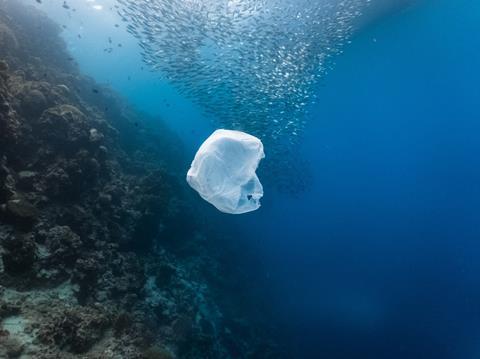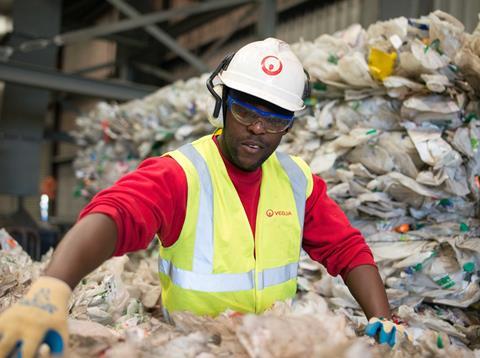
Libby White takes a look at the wave of response towards the Treasury Consultation Report on Single Use Plastic shared on 18th August 2018.
EUROPEN and 67 other European and national associations representing a wide range of packaging materials and sectors across the packaging value chain, have announced joint recommendations on the Commission’s proposal for a Directive on the reduction of the impact of certain plastic products on the environment, i.e. the Single-Use Plastics Directive (SUP).
The 68 organisations acknowledge the problem of plastic pollution and are committed to finding solutions. They call on the EU to make sure that all intended and unintended consequences of the proposal are properly evaluated, and not to sacrifice legislative quality, effectiveness and workability for speed. In order to help inform negotiations, the co-signatories make nine recommendations with concrete suggestions to improve and clarify the text in line with core policy principles such as policy coherence, Better Regulation and proportionality.
The recommendations aim to ensure that: a coherent EU Policy framework for packaging is maintained, the Internal Market is safeguarded, the root causes of marine litter are addressed holistically, and meaningful innovation and investments are incentivised with sufficient development time from R&D to commercialisation.
“Some aspects of the proposal challenge core policy principles of Better Regulation, which is of concern for all materials and sectors in the packaging value chain,” said Hans van Bochove of Coca-Cola European Partners and EUROPEN Chairman. “With this cross-industry statement we want to clarify our common overarching objectives as value chain partners. It is crucial that policies contain clear definitions and are based on a complete evidence-based impact assessment to maintain confidence in an informed law-making process and avoid possible unintended consequence,” underlined Van Bochove.
“Industry players are affected in different ways and at different levels, directly and indirectly by the SUP,” said Virginia Janssens, EUROPEN Managing Director. “The complexity of and interlinkages between impacts along the value chain must be kept top of mind if we want to avoid negative unintended effects and secure a meaningful, coherent policy framework. Our united message offers recommendations and a continued commitment and willingness to be part of the solutions. To this end, EUROPEN will contribute to ensure policy coherence based on a fact-finding research, resulting in an effective roadmap,” she concluded.
Executive Director of the Foodservice Packaging Association, Martin Kersh, comments:
“The FPA welcomes all policies that encourage plastics recycling and enables the full value of used plastics to be realised as our society moves towards a circular economy. We are therefore pleased to be in discussions with the Treasury on how the tax system can be applied to achieving the intention of the waste hierarchy.
“However, we are concerned that in such a wide ranging evidence call the only packaging items named are paper cups, which contain just seven per cent plastic and takeaway boxes. The UK now has the capacity to recycle every single cup used. The industry has been establishing schemes to ensure cups are collected and taken to recyclers who are able to utilise the plastic element and retrieve high quality fibres to be used in a number of applications so saving virgin material.
“The coffee shop industry and its suppliers has put in a huge effort and resources into achieving this infrastructure, so the prospect of taxation, which according to research will reduce demand rather than increase reusable usage, is a disincentive to further investment.
“The UK much needs an on-the-go waste management infrastructure. This requires investment and is why the FPA has campaigned strongly for reform of the Packaging Recovery Note system which sees businesses paying greatly increased sums to account for the packaging they place on the market and ensure they are recycled. This reform would encourage the use of recycled content and encourage packaging that is easier to recycle.
“PRN reform will also ensure all funds raised would be devoted to collection, sortation and recycling and would help Local Authorities. By contrast, the UK does not hypothecate its taxes and we feel the Treasury must ensure the public understands that none of the funding raised from potential taxation is to be targeted towards investment in recycling facilities, something which the public are demanding.
“The Treasury would like businesses to change the plastics they use. Changing the material input on packaging machinery is complex and if taxes are to proceed then we ask the Treasury gives business three years in order to make the changes rather than scrap current equipment.
“We look forward to working with the Treasury as we broadly share the same aims, however we need to ensure business is not placed under huge stress at a time of Brexit uncertainty in order to achieve them.”
Lorax Compliance welcomes plastic tax support, as Michelle Carvell, COO affirms, “Lorax Compliance welcome the support of consumers towards a range of UK taxes on non-recyclable plastic items. Although businesses already pay fees towards recycling programmes that manage the recovery of their products, the support from consumers is starting to reinforce how critical it is to have a joined up solution so solve issues of waste and recycling in the UK.
“Many businesses have already committed to voluntary standards on plastics, such as companies signed up to the UK Plastics Pact, but the awareness and support from the consumer side can help to guide future decisions for business who are placing products onto the market in packaging.
“Similar initiatives are also being considered globally, with France having already announced plans to introduce a similar levy earlier, with products that have recycled plastic packaging costing up to 10 per cent less and those with non-recycled plastic up to 10 per cent more.
“It is imperative that the money generated from any such a tax is reinvested into improving facilities, so recycling rates can continue to increase. However, this can only be a success if consumers are willing to recycle and know what to recycle. Without this education, a sustainable outcome cannot be achieved. With the success of the plastic bag levy in reducing their usage, and the widespread support for a proposed ‘latte levy’, we believe this is another positive development in the progress towards a sustainable future.”
A Veolia spokesperson offers encouragement towards the setting of ambitious targets:
"We all want to increase the amount the UK recycles and a simple tax incentive could be used to encourage recyclable materials and designs for products and discourage the use of harder to recycle options such as black plastic and polystyrene yogurt pots.
"As a collector, sorter, re-processor and seller of recycled plastics Veolia appreciates the dynamics at play and other important measures will also help. These include clearer labelling - a simple green dot for example - so consumers know what can be easily recycled, a revision of the existing Packaging Recovery Note (PRN) system to remove the advantage given to export, and a simple deposit return system for plastic and aluminium cans.
"The setting of ambitions targets, such as a minimum percentage of recycled content in packaging, will ensure plastic recycling increases dramatically over the next five years to ensure a more circular and sustainable future".













